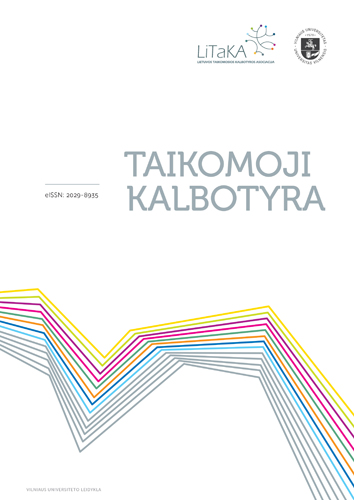Interpretive communities: Estonia’s case study
Interpretive communities: Estonia’s case study
Author(s): Karin SibulSubject(s): Translation Studies
Published by: Vilniaus Universiteto Leidykla
Keywords: conference interpreting; Stanley Fish; interpretive communities; interpreting research; lost independence;
Summary/Abstract: This paper discusses Stanley Fish’s notion of ‘interpretive communities’, based on interviews conducted with interpreters who operated in Estonia from 1944 to 1991 while Estonia was a Soviet republic. 43 semi-structured convergent interviews were conducted: 21 with people who worked as interpreters and 22 with people who recruited interpreters or worked with an interpreter during this period. This study has presented a new perspective for the consideration of ‘interpretive communities’ as defined by Stanley Fish. It has demonstrated the applicability of the notion on the basis of interviews conducted with interpreters. It is clear that interpreters apply ‘interpretive strategies’, depend on ‘reader’s activities’ and on the ‘structure of the reader’s experience’. In analysing the gathered material, I applied a novel approach and extended Stanley Fish’s notion of ‘interpretive communities’ from readers to interpreters. My conclusion is that Estonia’s post-World War Two interpreter community falls into two interpretive communities, the dividing line being languages used (Russian as the A or B language versus English, German, Swedish, Polish, French or Spanish as the B language, etc.) and experience (local versus international). While this study focused on interpreters in Estonia after World War II, it could be beneficial to compare the findings with other Baltic and East European countries. The analysis of interviews revealed that the interpreters operating in the years reviewed did not always meet the requirements of a professional interpreter. They were all interpreters by chance, however, not professionals. It should be recognized that factors such as the interpreting setting and preparation, as demonstrated in the above examples, played an important role. This research could be taken a step further and interviews conducted with interpreters active since the restoration of independence.
Journal: Taikomoji kalbotyra
- Issue Year: 2014
- Issue No: 4
- Page Range: 1-15
- Page Count: 15
- Language: English

